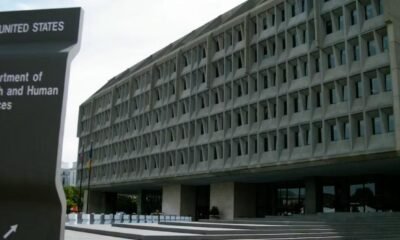Entertainment
Advocates Urge Licensing of Dental Therapists to Tackle Arizona’s Oral Health Crisis

Advocates are intensifying efforts to introduce dental therapists in Arizona, responding to alarming dental health statistics among children and adults. Dental therapists, classified as “mid-level providers,” can perform certain dental procedures, mirroring the roles of physician assistants in healthcare.
The push for legalizing dental therapists in Arizona faced a setback last December when a legislative subcommittee dismissed the proposal. However, supporters are determined to resubmit their application by the September 1 deadline.
Kristen Mizzi Angelone, a dental policy officer with the Pew Charitable Trusts, expressed confidence in the growing momentum for dental therapy. “It’s no longer a question of if dental therapists will be licensed,” she stated. Advocates from various organizations, including the conservative Goldwater Institute and the Arizona Dental Hygienists Association, believe that dental therapists could provide essential services like fillings and extractions at reduced costs.
Nonetheless, resistance from organized dentistry persists. The American Dental Association argues that the root issue lies not in the workforce shortage but in improving access through better funding and outreach for existing dental services. They contend that enhancing teledentistry and reducing administrative barriers within Medicaid are viable alternatives.
Kevin Earle, executive director of the Arizona Dental Association, criticized advocates’ claims, asserting that the premise of a workforce shortage is fundamentally flawed. He emphasized the need for addressing the real problems affecting oral health access rather than adding new provider categories.
Both sides acknowledge that Arizona’s oral health situation is dire. Annual charity events in Phoenix and Tucson highlight significant need, with many individuals camping overnight for a chance at limited free dental care. A recent Goldwater Institute report revealed that 2.4 million Arizonans live in areas designated as dental health professional shortage areas.
The stakes are particularly high for children, with 52% of Arizona kindergarteners experiencing tooth decay, far exceeding the national average. American Indian children face even greater disparities, with studies indicating that 69% of Navajo preschoolers have untreated cavities.
Proponents argue that dental therapists can alleviate this crisis. They note that not all dental procedures require a dentist’s expertise, and establishing dental therapy programs could attract more providers to underserved areas, particularly with concerns surrounding the cost and accessibility of dental education.
In contrast, Earle maintains that improving access to existing dental coverage, especially for populations on Medicaid, should take priority. He also pointed out that while the rate of practicing dentists in Arizona has grown, it remains below the national average and is unevenly distributed.
Despite this, challenges persist in ensuring affordability and access. Many seniors and low-income individuals struggle to afford dental services due to lack of insurance coverage, forcing some to seek care in Mexico, often at the cost of safety and quality. Recent studies from Minnesota and Alaska demonstrate the positive impact dental therapists can have on reducing emergency room visits and improving patient satisfaction.
As advocates prepare to present their case again to the Arizona Legislature, the outcome remains uncertain. The conversation surrounding dental therapists continues to evolve, with both sides working hard to address the urgent dental health crisis facing many Arizonans.
Contact health reporter Stephanie Innes at 573-4134 or email sinnes@tucson.com. On Twitter: @stephanieinnes


















